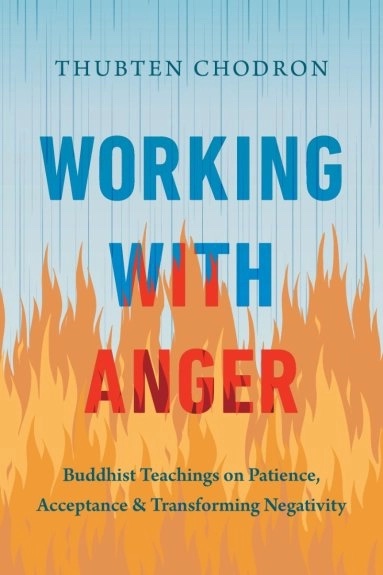The betrayal of trust is a very painful emotional experience, which occurs in many kinds of relationships. For example, our partner or spouse leaves us. Our children don’t recognize how much we love them or how much we want to help them and instead turn their back on us with resentment. An employee whom we have trained doesn’t care that we are relying on him and quits when we need him the most. Our boss doesn’t appreciate our loyalty to the company and lays us off with the next budget cut. A close friend with whom we’ve shared the ups and downs of life for years suddenly talks behind our back and accuses us of using her. The list could go on and on. We have all had the experience of feeling betrayed by others. And yet, when it happens to us, the feelings are so powerful that we’re sure no one has ever been treated this poorly or felt this badly. We easily get locked into our pain and grief, retreating inward or exploding outward in an attempt to eliminate the pain. In actual fact, however, everyone has experienced betrayal of trust. Our experience is not unique.
As painful as it is when our trust has been betrayed, we seldom think of ourselves as having betrayed others’ trust. Yet, if each of us has experienced this, who has caused it? If we look deeply, we may find that each of us has intentionally or unintentionally betrayed others’ faith in us. Although we should avoid feeling guilty and despising ourselves for this, it helps our own healing to admit that just as we were confused and miserable when we hurt others, they too were confused and miserable when they hurt us.
See the One Who Harms Us as Our Supreme Teacher
Buddhist teachings contain several methods for dealing with the anger and other painful emotions that arise when our trust is betrayed. The Eight Verses of Thought Transformation recommends dealing with this situation as follows:
When someone I have benefited
And in whom I have placed great trust
Hurts me very badly,
I will practice seeing that person as my supreme teacher.
At first reading, this verse seems almost impossible to practice. When we’ve been hurt, the last thing we want to do is see the other as our supreme teacher. Instead, we would rather belittle that person, telling others how unreliable and cruel he is. Some of us lash out in anger, seeking to hurt the other as much as she has hurt us. Others of us sink into despair and self-pity, holding on to our view that the world is a hostile place where there is no one upon whom we can rely.
However, when someone betrays us, we have the opportunity to learn profound lessons that we might not have otherwise realized. For example, if we look closely, we may learn that although we thought we sincerely wished the other person well, we may have expected him to meet our needs. Wishing another well is rooted in genuine caring; it is focused on the other person. Wanting someone to meet our needs is based on fixed ideas of who someone is and what he should do; it centers on us. This self-focused attitude predisposes us to disappointment later. When we finally realize this, we see that the person who hurts us is our supreme teacher, for he shows us the defects of our view, thus enabling us to revise it.
Inspect Our Unrealistic Expectations
To resolve our hurt and anger over a betrayal of trust, we need to acknowledge any grief that arises. In doing so, we sometimes will see what our own unrealistic expectations have been. For example, although we knew a person had problems, we still hoped these would disappear, especially since he had come to know us and we were helping him. Although we suspected someone was lying, we deluded ourselves into believing her because we wanted what she said to be true. Although we knew that so much of what happens in life cannot be controlled, we felt as if there should be someone who could fix it after we complained to them about the unfairness of it all. Letting these misconceptions surface and releasing them is an important step in the growth that comes from grieving in a healthy way.
Creating realistic expectations is an elusive art, for determining the point at which they become unrealistic is difficult. When we hire someone to do a job and he agrees, we expect him to abide by the agreement. However, if we concretize our expectation and do not accept that factors beyond our or his control may arise, we will run into trouble. When we recognize and let go of our concrete vision, our mind will be more fluid, and we will be able to gracefully accept what happens.
Rejoice in a Positive Past
When we’ve shared positive experiences with someone and later feel betrayed, we grieve not the loss of what we’ve had but the loss of the future of which we dreamed, which we now feel will never happen. Understanding this can be extremely helpful. The happiness and affection we shared in the past cannot be taken away. We have already experienced this and do not grieve its loss. Rather, we had visions and expectations of future happiness that we now realize will not be actualized, and we grieve this. But in looking more deeply, isn’t it strange to grieve for what doesn’t and never will exist, or to put it another way, to grieve for what existed only in our conceptual mind, in our imagination? Here we can clearly see the power of our mind in creating our experience, and thus the value of transforming our mind in order to reshape our experience.
Even though others have let us down, we can still hold the aspiration that their minds will be clearer and their actions more consistent in the future.
We can prevent ourselves from getting stuck in our feelings of loss and betrayal if we rejoice in the goodness we were able to share with the other person in the past, instead of focusing on the craving to recreate it in the future and the disappointment of not being able to do so. Then, we can stop clinging to the other person and wish him well in whatever he encounters. We can make aspirational prayers that both of us progress along the path so that our lives become meaningful for ourselves and others.
Accept That Change is Universal
Grieving essentially means adapting to change. Although change is universal, we typically know this only intellectually. In the recesses of our mind, we grasp at permanence and predictability and feel that our trust has been betrayed when change that we did not predict and sanction happens. For example, we understand that our relationships are impermanent by their very nature. Everything that arises also changes. Thus, from the very beginning, any relationship by its nature is bound to change. There is no way around this. Yet unless we deeply accept this, we will be surprised when it does so.
Being Buddhist practitioners, Theresa and David had discussed the unpredictability of cyclic existence, although they never anticipated it would manifest the way it did in their friendship. They enjoyed each other’s company, especially the Dharma discussions that enriched both of their practices. Nevertheless, as will happen, one day their egos arose and clashed, painful things were said back and forth, and both of them felt hurt, misunderstood, and angry. At that time, Theresa wrote to David:
“Our friendship has been stimulating and mutually beneficial. Yet, because both of us still have the seeds of confusion and anger in our minds, for sure one day we would quarrel. Previously we discussed our individual problems with anger and felt closer to each other because of it. Now that our anger is directed at each other, we need to go beyond our feelings of betrayal and deal with this change constructively. I’ve heard it said that someone does not truly become your friend until you have resolved at least three quarrels in a satisfactory way. So this is our chance.
“Both of us want happiness and neither of us wants suffering. I know, and I believe you do too, that both of us want the other to be happy, and neither of us wants the other to suffer. Yet, because we are beings under the influence of ignorance, this misunderstanding has occurred. In the moment, you may have meant the words you said, or I may simply have misunderstood you due to my buttons. The same may apply for your hearing what I said. It hardly matters who meant what. We each interpreted the other’s words in a way that left us feeling hurt and angry. We both must work on ourselves to bring some gentleness into our minds. But I have confidence that due to the power of the Dharma and our commitment to it, we will both grow from this experience and that what initially appears to separate us will, in the end, enable us to oppose old habits and to grow in beneficial ways.”
Reading this, David came to feel what Theresa had felt when she wrote it-that a strong basis for friendship existed and that both of them had the integrity to acknowledge, be responsible for, and modify what they had contributed to the disagreement. In time, by working on themselves, listening to each other closely, and communicating well, they were able to work things out. What could have remained a painful betrayal of trust had become the condition for individual growth and strengthening of their relationship.
Recognize the Nature of Cyclic Existence
It is helpful to recognize that being let down is part of the very nature of cyclic existence. Suffering and disappointment are bound to happen because we are under the influence of disturbing attitudes, negative emotions, and karma. Why be surprised when they do? Being aware of the nature of cyclic existence in this way will propel us to eliminate its causes by practicing the Dharma.
Meanwhile, we can recognize that others are under the influence of disturbing attitudes and negative emotions just as we are. Why should we expect ordinary sentient beings similar to ourselves to be continuously kind and clear in their motivation and actions? They, as we, are frequently overpowered by prejudice, misjudgment, fear, and greed. When they do or say things that hurt us, they are doing so because they are unhappy.
Letting go of expectations and recognizing the nature of cyclic existence do not entail becoming cynical. Derisively thinking “I can’t expect anything of anyone” is not a virtuous or realistic attitude that helps us on the path to enlightenment! Even though others have let us down, we can still hold the aspiration that their minds will be clearer and their actions more consistent in the future. The person still has the Buddha potential, and we pray that she will be able to actualize it. In that way, our mind remains optimistic and hopeful regarding the future.
♦
From Working with Anger © 2024 by Thubten Chodron. Reprinted in arrangement with Shambhala Publications, Inc. Boulder, CO. www.shambhala.com
Thank you for subscribing to Tricycle! As a nonprofit, we depend on readers like you to keep Buddhist teachings and practices widely available.

